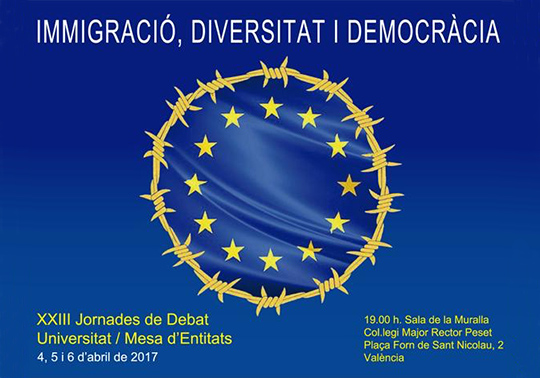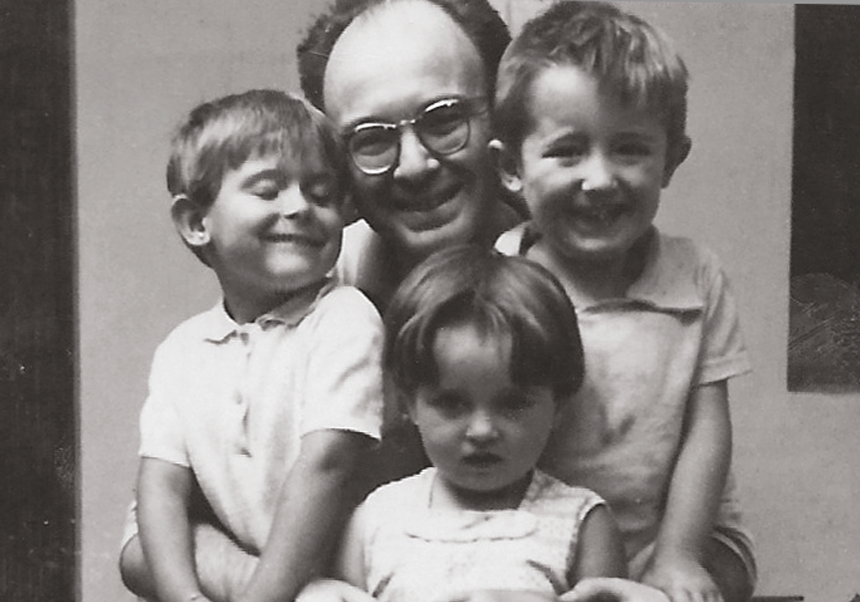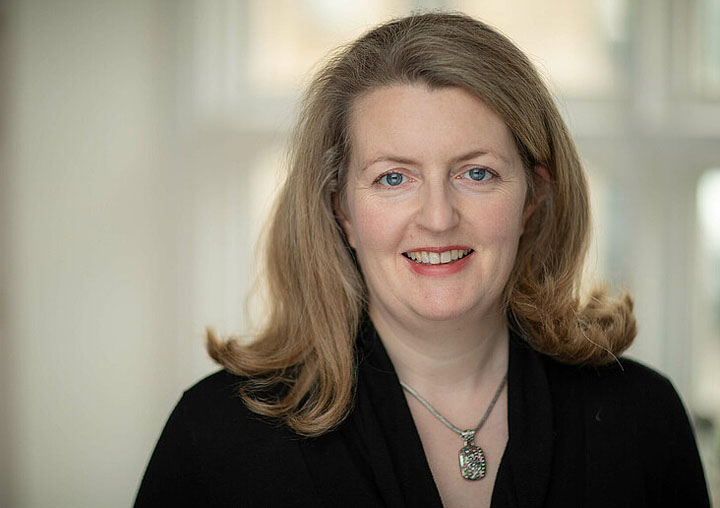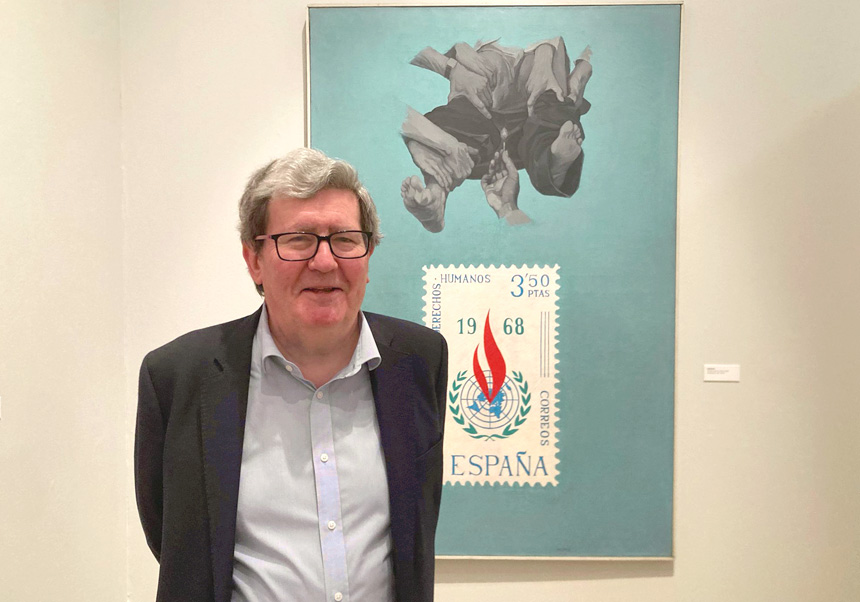The refugees crisis in Europe centres the debate of the 13th Debate Sessions on Immigration
- April 3rd, 2017

The refugees crisis and the migration policy of the European Union will be the main topic of the 13th Debate Sessions ‘Immigration, Diversity and Democracy’ which will be held from 4 to 6 April in the Principal Peset Hall of Residence. It is organised by the Development Studies UNESCO´s Chair of the Universitat de València and the Mesa de Entidades de Solidaridad con los Inmigrantes.
There will be one conference of free entry in each session which will always start at 19:00. The General Foundation of the Universitat de València collaborates through the Cooperation Area and the Principal Peset Hall of Residence.
The sessions, whose aim is to pool the reflection of the social entities and the academic researches about the vulnerable situation of the migrants to public opinion. They will star on Tuesday 4 April with the opening ceremony by the Director of the Principal Peset Hall of Residence, Carles Xavier López Benedí, and Rosario Polito Rizzo from the Mesa de Entidades de Solidaridad con los Inmigrantes (Entities Committee of Solidarity with Immigrants). Then, the lawyer Pilar Serrano will give the first conference of the debate entitled ‘Sin papales, sin derechos’ (Without papers, without rights). Enrique Asensi will present and moderate the round table of Mesa de Entidades.
On Wednesday 5, José Antonio Moreno Díaz, lawyer and consultant of the European Economic and Social Committee, will visit the Universitat de València. It will be presented and moderated by Ventura Montalbán, also from Mesa de Entidades. Moreno Díaz will think about ‘the evolution of the migratory policy of the UE’ in a conference entitled ‘Una nueva aproximación a las Migraciones desde la Unión Europea: análisis y perspectivas’ (A new approach to migrations from the European Union: analysis and perspectives’.
In his intervention, José Antonio Moreno Díaz will stablish a balance between the link of relationships among the European policies and the most recent events, such as the Syrian War, the English yes to Brexit or the rise of fascist movements in Europe, for instance, with the aim of showing the impact in perspective. ‘We should distinguish the migratory movements related to international law which generate obligations and reception and protection responsibilities in case of war or persecution (asylum) from other movements related to economic reasons forced by the decisions of each country in particular. In all this, the UE’s policy has been short-sighted and ineffective’, affirms.
José Antonio Moreno Díaz is graduate in Law by the Universidad Autónoma de Madrid and he has worked in specialised courses related to violence against women and immigration law. He works as a lawyer since 1991, is consultant of the European Economic and Social Committee since 2015, and as a teacher he has taken part in courses, congresses and conferences specialised in immigration, asylum, migratory policy, interculturalism and co-operation.
Moreover, he has collaborated in several publications with immigration articles, he founded the NGO S.O.S. Racismo Comunidad de Madrid in 1992, he was member of the Asociación Española Pro Jurado in 1996, he has been spokesperson of the Foro para la Integración Social de los Inmigrantes, member of the Aula de Migraciones de la ICAM, activist of Memoria Democrática and president of the Asociación Foro por la Memoria until 2012.
Closure
The last participation, on Thursday 6, will be the one of Jaume Durà Tohus, lawyer and coordinator of the Spanish Commission to Help the Refugee (CEAR) in Valencia. He will talk about ‘Refugiados y Derechos Humanos’ (Refugees and Human Rights). The presentation will be made by Isabel López Atienza, who represents the Mesa de Entidades.
The closing ceremony of the sessions will be chaired by the delegate of the Principal for Cooperation and director of the Development Studies UNESCO´s Chair of the Universitat de València, José Miguel Soriano.
This meeting, which has been taking place for more than 20 years uninterruptedly, debates again about the humanitarian crisis which represents the situation of the refugee people in Europe because this situation of social alert remains in force. There are thousands of people who are fighting to save the life in the UE borders and who are trapped between the war in their countries of origin and the European migratory policies based on deportation agreements.
File in: Conferències i debats , Col·legi Major Rector Peset , Càtedres , Unesco
















